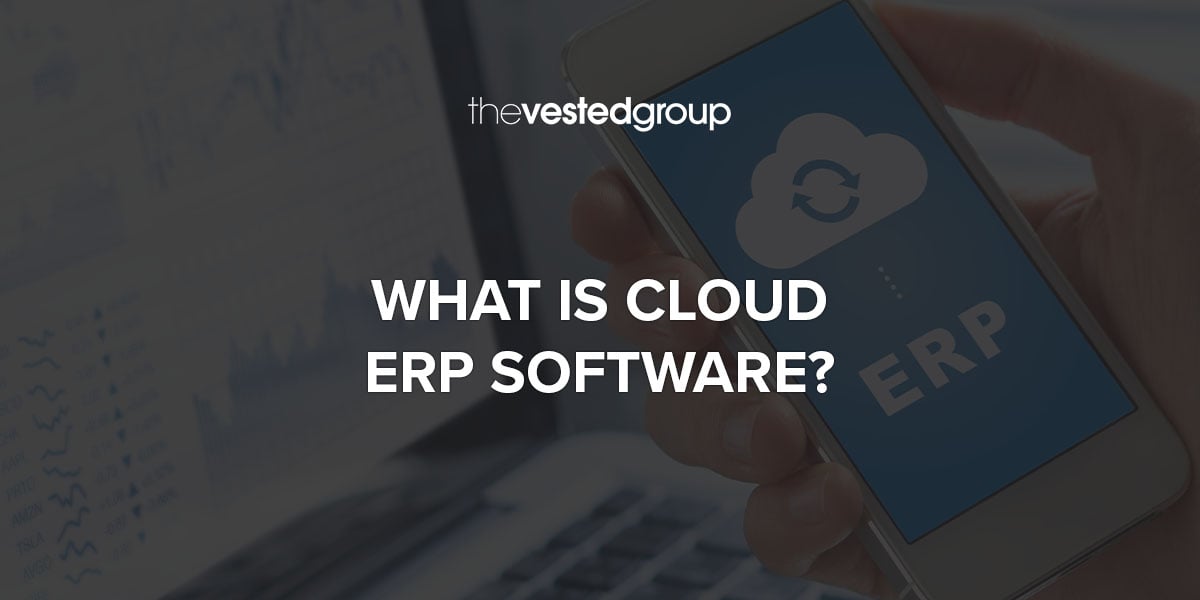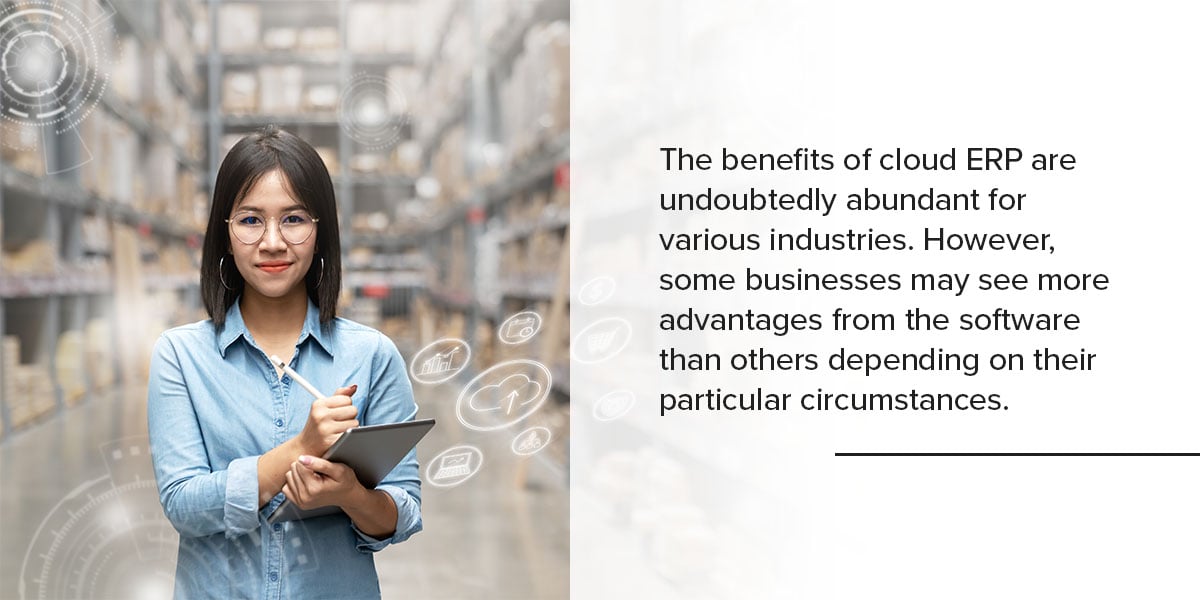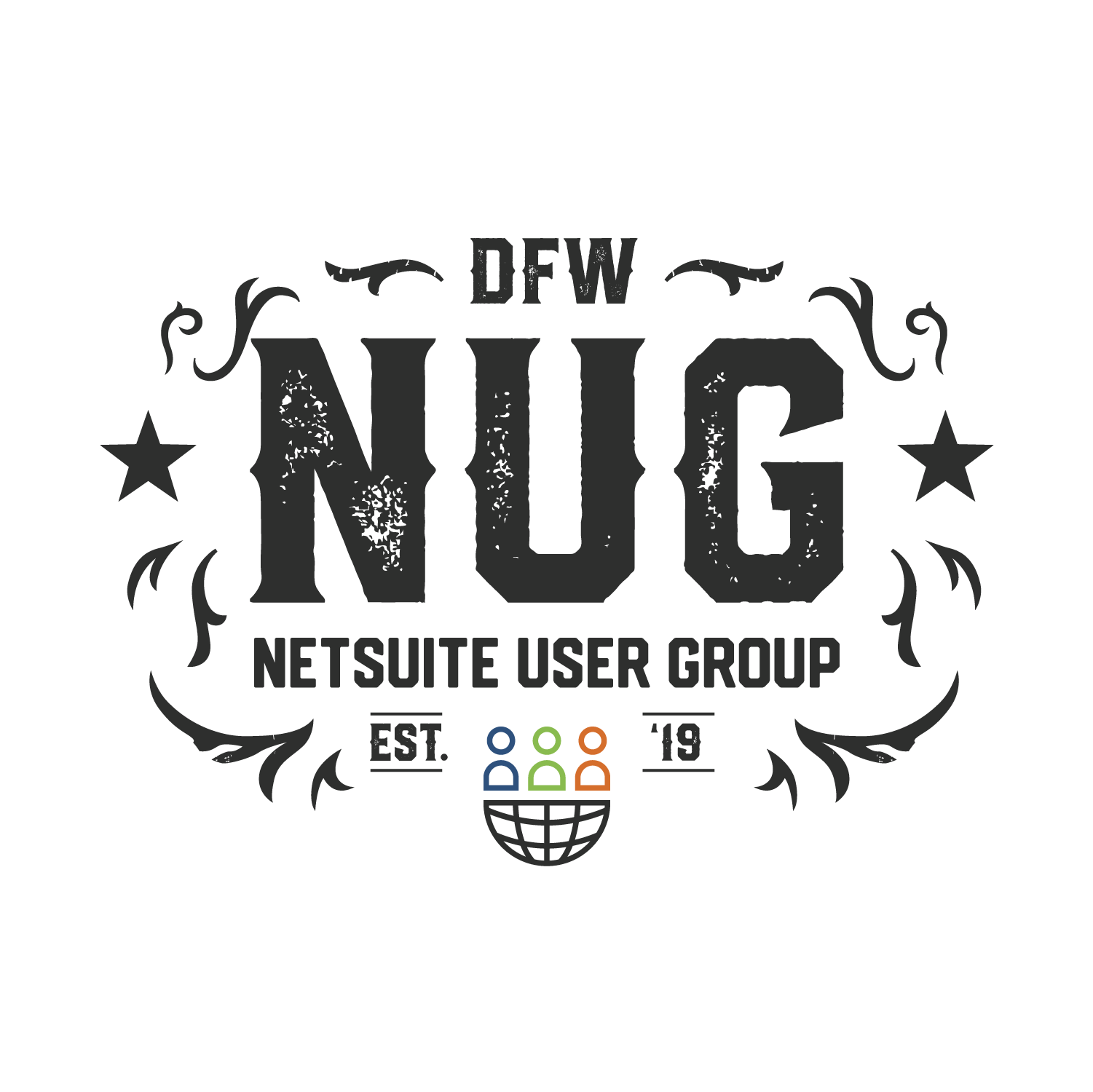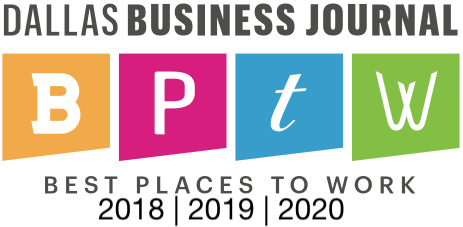
When running a business, there are several components to track to ensure it is successful. However, sometimes managing all these factors can be difficult and time-consuming. That is why cloud-based enterprise resource planning (ERP) software for small businesses is so incredibly useful.
What is cloud ERP, and how does it work? ERP software helps businesses manage all their functions and departments through a single software solution instead of using several different programs. It provides uniformity across the entire operation by allowing companies to streamline and manage important business components such as:
- Compliance
- Supply chains
- Procurement
- Manufacturing
- Project management
- Accounting
- Budget planning and tracking
- Financial report analysis
One study showed that 95% of companies that implemented ERP systems saw immediate improvements in their business operations. The popularity of ERP cloud-based software continues to grow at a rapid pace, but who are the primary users of ERP systems? Dozens of major industries have been switching to cloud ERP software, including but not limited to:
- Digital Media
- Professional Services
- Bioscience and Biotechnology
- Consulting Firms
- Educational Institutions
- Grain Milling
- Health and Beauty
- Health Care
- Food and Beverage
- Electronic Recycling
- Manufacturing
- Medical Practices
- Nonprofits
- Retail
- Transportation and Logistics
Cloud ERP vs. On-Premises ERP
There are two different kinds of ERP: cloud and on-premises. To understand why cloud ERP has become so much more beneficial for businesses compared to on-premises solutions, you first need to learn the difference between them.
What Is On-Premises ERP?
On-premises ERP software is installed locally into your hardware and servers and then managed by your company's IT staff. It can be quite expensive to install and properly maintain. This is because you must ensure you have compatible operating systems and databases, effective anti-virus software and a reliable IT staff that will ensure the system is kept in excellent functionality through regular updates and troubleshooting.
Furthermore, on-premises ERPs come with the risk of data loss in the event of hardware malfunctions or natural disasters. This is because the software is physically kept within the hardware of the business's operating systems, making it extremely vulnerable.
What Is Cloud ERP?
Cloud ERP software provides enterprise resource tools offered by an offsite vendor via the cloud. The cloud allows companies to take full advantage of the many benefits that ERP software offers without the responsibilities of performing routine maintenance and repairs. Cloud ERP systems require recurring fees that include everything you need to manage your business without the extra worries of creating a management system.
Cloud-based ERP solutions do not have the same physical risks of loss or destruction as those of on-premises ERPs. Since the program is stored and accessed within the cloud, the data is kept safe if the physical operating systems ever become compromised.

Benefits of ERP Software Solutions
The benefits of cloud ERP are undoubtedly abundant for various industries. However, some businesses may see more advantages from the software than others depending on their particular circumstances. In general, businesses that have benefited from ERP systems share a few common factors:
- The business is currently experiencing growth or is planning to grow significantly in the near future.
- The company requires better enterprise software to help with correcting issues within its operations.
- Parent organizations need a way to streamline systems across all companies due to mergers or acquisitions.
- The current business software is outdated and unable to be upgraded to adequately meet the needs of organizational operations.
- There is a business plan implemented with forward-thinking innovations that incorporate new enterprise solutions.
Companies that introduce the benefits of cloud ERP to their operations can experience:
- Better business reporting: Get improved reporting strategies thanks to tools that provide real-time information and a single, integrated database that tracks all business processes.
- Improved customer service: You'll have easier access to customer information, which assists with faster response times to consumer needs. ERPs also help improve on-time delivery and order accuracy ratings.
- Reduced inventory costs: The software allows you to manage and carry only the amount of inventory your business actually needs. This method also helps with reducing overhead and decreasing fulfillment times.
- Improved business operations: Your operations will become more streamlined due to the ability to automate manual and routine tasks to foster enhanced workflow and efficiency.
- Enhanced data security: You can safeguard your important data more carefully since businesses don't have to risk installing malicious software with a reliable and trusted ERP.
Disadvantages of ERP Systems
Although an ERP system undoubtedly offers extensive benefits, there are some important factors to consider to determine if it is the right solution for a company. Though they provide convenience and valuable tools, ERPs also involve some common considerations like:
- Intricate data conversion: Complex data conversion requires companies to define, examine and analyze data sources. Developing a solid data conversion strategy can be tricky to do successfully. Bad conversions can cause issues such as delays and cost increases. It can also take significant time to move old data from the old business system.
- Required training: Your company must train all users of the ERP system to help keep everyone in line with business operations. Staff must become familiar with the ERP software to use it at its fullest potential and see its benefits for the business. Everyone who will have to learn the program includes executives and other members in leadership positions within the company.
- Time and monetary investment: You'll have to invest time and money for implementation, maintenance and continuous training as the software changes over time.
- Costs and fees: For some ERPs, recurring fees can often involve paying per month for every individual user.
Reach out to The Vested Group With Any ERP Questions
The Vested Group is an award-winning NetSuite Solution Provider dedicated to offering businesses the support they need to introduce ERP systems into their operations. We offer a full range of NetSuite products specially designed to deliver enterprise resource planning tools to fit your business needs. Our solutions are perfect for industries such as:
- Electronics Reuse and Distribution
- Manufacturing
- Distribution
- Personal Services
- Oilfield Services
- Grain Milling
From the very beginning, we will help you choose the right components to create the perfect ERP for your company. Our knowledgeable and experienced staff are ready to work closely with business owners and managers to help them take their operations to the next level of efficiency and success. Whether you are ready to start installing your ERP solution or simply have questions, The Vested Group experts are prepared to help! Contact us today for more information.






